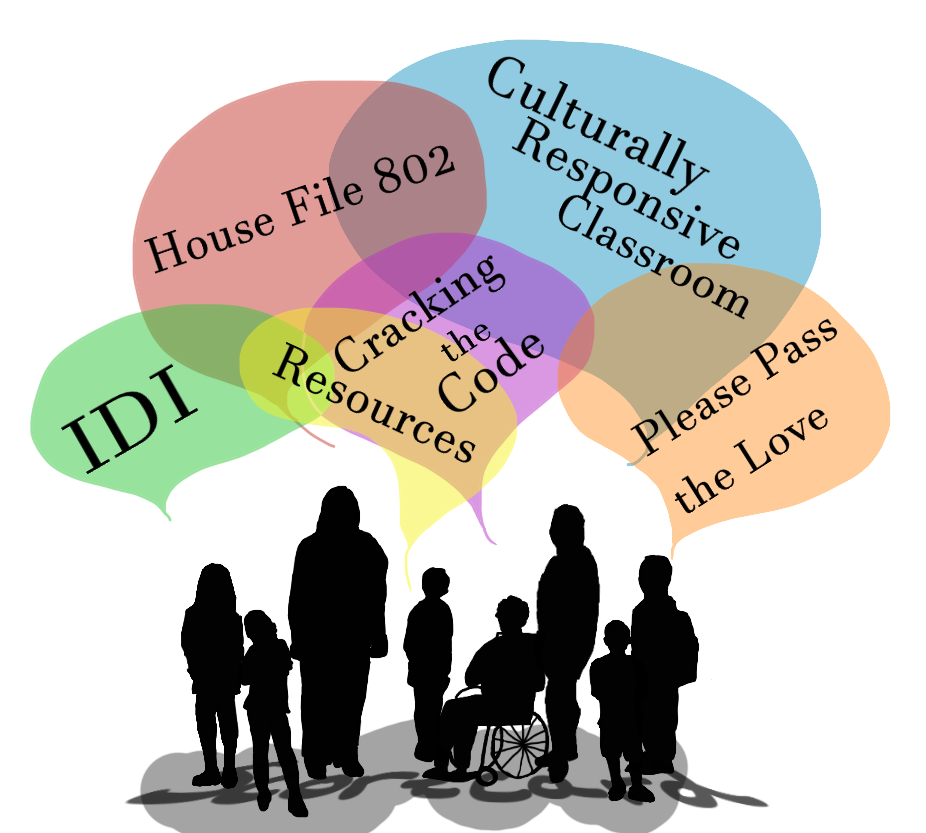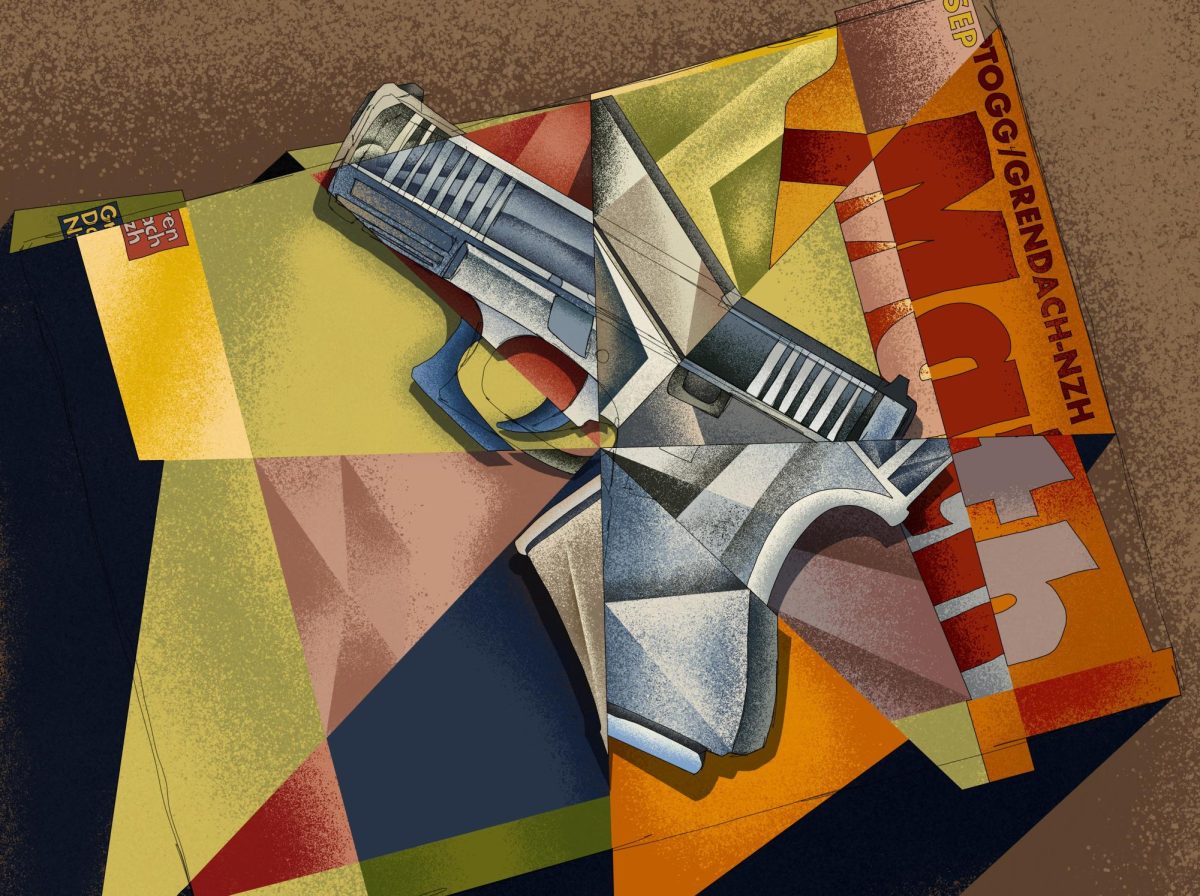The Grinnell-Newburg Community School District is in the process of implementing what it calls a Culturally Responsive Curriculum Scorecard system within its social studies classes, but potential new legislation could pose roadblocks to such initiatives in the near future.
On March 16, H.F. 802 passed the Iowa State House of Representatives. The bill, which echoes a now-reversed Executive Order from the Trump administration, seeks to limit the ability of public schools and universities to conduct their own diversity trainings for teachers and bans the teaching of so-called divisive topics in the classroom.
Such topics include that “the United States of America and the state of Iowa are fundamentally or systemically racist or sexist,” and “that meritocracy or traits such as a hard work ethic are racist or sexist, or were created by a particular race to oppress another race.”
The bill would still allow schools to promote diversity within their curricula, but only so long as it teaches the subject in a way that is not critical of Iowa or the United States.
Dr. Janet Stutz, superintendent of Grinnell-Newburg Community Schools, said that she and other superintendents around the state have not currently developed plans for how to adapt their teaching if the bill passes.
“I have no idea where this is going to go,” said Stutz. “I have no idea.”
According to Stutz, part of the reason superintendents have been hesitant to respond to the bill is because it is written in ambiguous language. “You can interpret this in a hundred different ways,” she said.
For example, Stutz said that the bill is in conflict with state educational standards about understanding the global economy, which includes requiring schools to teach students about power structures and how they interact with history. Given the topics that are labeled as “divisive” by the new legislation, such as systemic racism and sexism, discourse on power structures could be limited. “How do you teach history without talking about that?” said Stutz.
If the bill passes the Senate, the Department of Education will then write new procedures that detail what is and isn’t allowed to be taught in schools, based on their interpretation of the law. School districts around Iowa would then be required to follow these new procedures.
Although it’s unclear if H.F. 802 would affect Grinnell-Newburg’s plans to increase diversity training and teaching – programs which began around two years ago, long before the new bill or Trump’s Executive Order had been announced – Stutz values the district’s trainings and doesn’t want to see them go.
“We’re not in the business of creating divisiveness or separating our children. When we do training, our goal is to make sure all children are welcome in the classroom,” Stutz said.
Until or if the Department of Education changes its procedures, Grinnell-Newburg will continue with its push to expand diversity awareness and education.
“The goal is for you, as an individual, to learn about culture and diversity that reflect the students in your classroom,” Stutz said, “[so that] when they bring things to the classroom for participation you have some awareness.”
The most recent addition to the district’s diversity program is a scorecard system, which was introduced to rate the diversity of social studies classes. It began in January of this year.
Lessons are now scored for the diversity of the points of view they include, the diversity of the authors assigned to students to read and the various ways in which course content represents different groups. Teachers are also scored on their choice of material, and the real-life connections that students can make to that material. The overall score rates lessons on their cultural sensitivity, ranging from “culturally destructive” to “culturally responsive.”
Grinnell High School social studies teacher Todd Crites said that teachers are currently adapting the scorecard to social studies and using it to help them develop their curriculums. One teacher will present a lesson that they want to improve to the other social studies teachers, and the group provides feedback.
“The process of adapting the scorecard to meet our needs has helped me be more reflective about my own teaching,” Crites said.
The original scorecard was developed for literature classes. Crites said that Grinnell-Newburg uses the “Social Justice Orientation” section, the “Teachers’ Materials,” and the “Guidance is provided” section, though they changed the name from “Guidance is provided” to “Teacher’s lesson includes.”
Copies of the scorecard are available in the school district office in downtown Grinnell for anyone interested in reviewing the criteria.
Crites said he appreciates having a list of criteria to evaluate his curriculum. He said it tells him “how well I engage students in experiences that help them appreciate cultures other than their own and how effectively I provide students opportunities to take action to contribute to positive change in our community.”
Heidi Durbin, dean of students at Grinnell-Newburg High School, said that the school has also brought in more speakers since summer 2020 to talk to students specifically about racism.
Topics that have been discussed by these speakers include the video series Cracking the Code, which gives an overview of systemic racism; what it’s like to be a Black student or student of color in the classroom; and what teachers can do to improve the student experience.
“It is not ours to say this way or that way, it’s ours to provide kids to have an understanding of what’s happening,” Stutz said. The goal, she said, is “to ensure that kids have that global perspective.”




































































